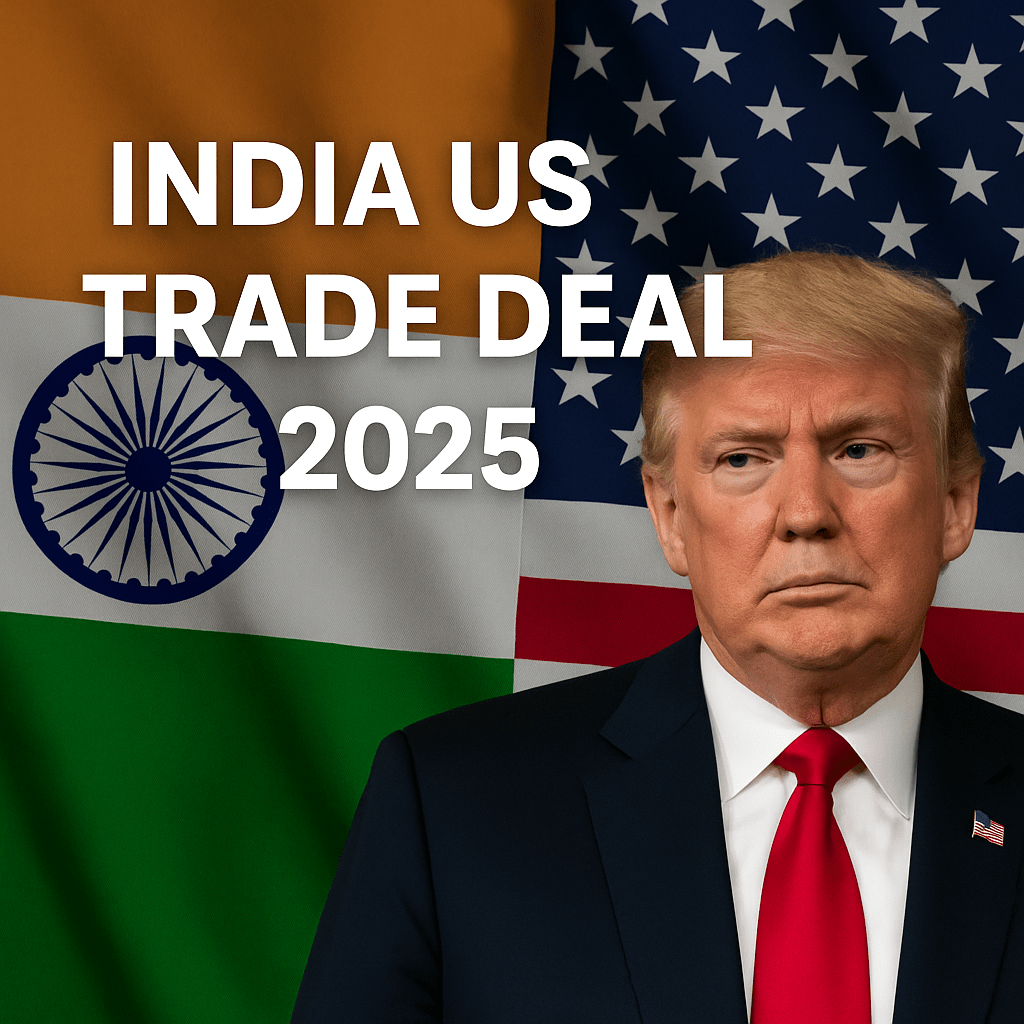|
Getting your Trinity Audio player ready... |
Why the India US Trade Deal Faces Delays

The much-anticipated India US trade deal has faced repeated delays, stirring uncertainty in both business and political circles. While both nations have expressed strong interest in reaching an agreement, critical issues continue to stall negotiations. These delays impact not only diplomatic relations but also have tangible consequences on the financial markets, especially the stock market news India sector follows closely.
At the heart of the delay is the ongoing India US tariff issue. The United States has pressed for greater access to Indian agricultural markets, especially for dairy products and genetically modified (GM) crops. However, India resists these demands, emphasizing the importance of protecting its millions of small-scale farmers who rely heavily on agriculture for their livelihoods. Indian policymakers argue that opening up these sectors without proper safeguards could devastate rural communities and upset the social balance.
India’s agricultural economy differs significantly from the industrialized agricultural systems prevalent in the U.S. and other Western nations. For India, farming is more than an economic activity—it is the backbone of rural society. This reality has made negotiations challenging, as the U.S. sees expanded market access as a key goal in its US trade policy with India, while India prioritizes protecting its domestic agricultural interests.
Adding to the complexity, geopolitical factors play a crucial role. The U.S. has adopted a tough stance on countries importing Russian oil, threatening sanctions and tariffs. India continues to import a significant amount of oil from Russia, which creates friction between the two countries. This geopolitical backdrop complicates the ongoing discussions around the India US bilateral trade agreement and is one reason why finalizing the deal has been so difficult.
The Impact of the India US Trade Deal on Stock Market and Bilateral Relations

The delay in the India US trade deal has significant implications for both the Indian economy and its stock market. Investors remain cautious as uncertainty prevails, which dampens foreign portfolio investment inflows and weighs on market sentiment. Analysts highlight that the impact of the trade deal on the stock market could be profound, especially if tariffs rise or remain unresolved.
If no agreement is reached soon, tariffs on Indian exports to the United States could increase from current levels to as high as 26%. Such a tariff hike would hurt major Indian export sectors, including pharmaceuticals, IT services, and manufacturing. The added cost would reduce India’s competitiveness on the global stage, negatively affecting earnings and investor confidence. This scenario could trigger volatility in the stock market news India is currently witnessing.
Conversely, a positive resolution of the India US trade deal could act as a catalyst for growth. Lower tariffs and clearer market access would boost the confidence of foreign investors and Indian exporters alike. Sectors such as technology, manufacturing, and healthcare stand to benefit from smoother trade relations and increased foreign direct investment (FDI). This would align with India’s ambitions to strengthen its manufacturing base and expand its global trade footprint, particularly through initiatives like “Make in India.”
Improved India US trade relations would also deepen strategic ties beyond commerce. Both countries could collaborate more closely on technology transfers, innovation, and infrastructure projects. Such cooperation could help India modernize key sectors and accelerate economic growth.
Financial experts point out that resolving the trade deal will reassure global investors who are currently monitoring India’s market movements. The return of stability could bring in more foreign portfolio investment, reversing recent trends of selling seen in Indian equities.
What Lies Ahead for the India US Trade Deal?
While the current delay may be frustrating, experts remain cautiously optimistic that both countries will eventually reach an agreement. Negotiations are expected to continue beyond the original deadlines, as diplomats work through complex issues involving tariffs, market access, and geopolitical concerns.
If finalized, the deal could lower tariffs on a range of Indian goods entering the U.S. market and vice versa. This mutual benefit would strengthen the India US bilateral trade relationship, fostering economic growth and geopolitical partnership.
However, the path to agreement requires compromise. India will need to carefully balance protecting its farmers with expanding trade opportunities. The U.S. will likely need to address India’s concerns over sovereignty and social welfare to reach a sustainable pact.
In the meantime, Indian businesses and investors should prepare for continued volatility in the markets, as unresolved issues keep uncertainty alive. Staying informed on developments in the US trade policy with India will be critical for market participants and policymakers alike.






